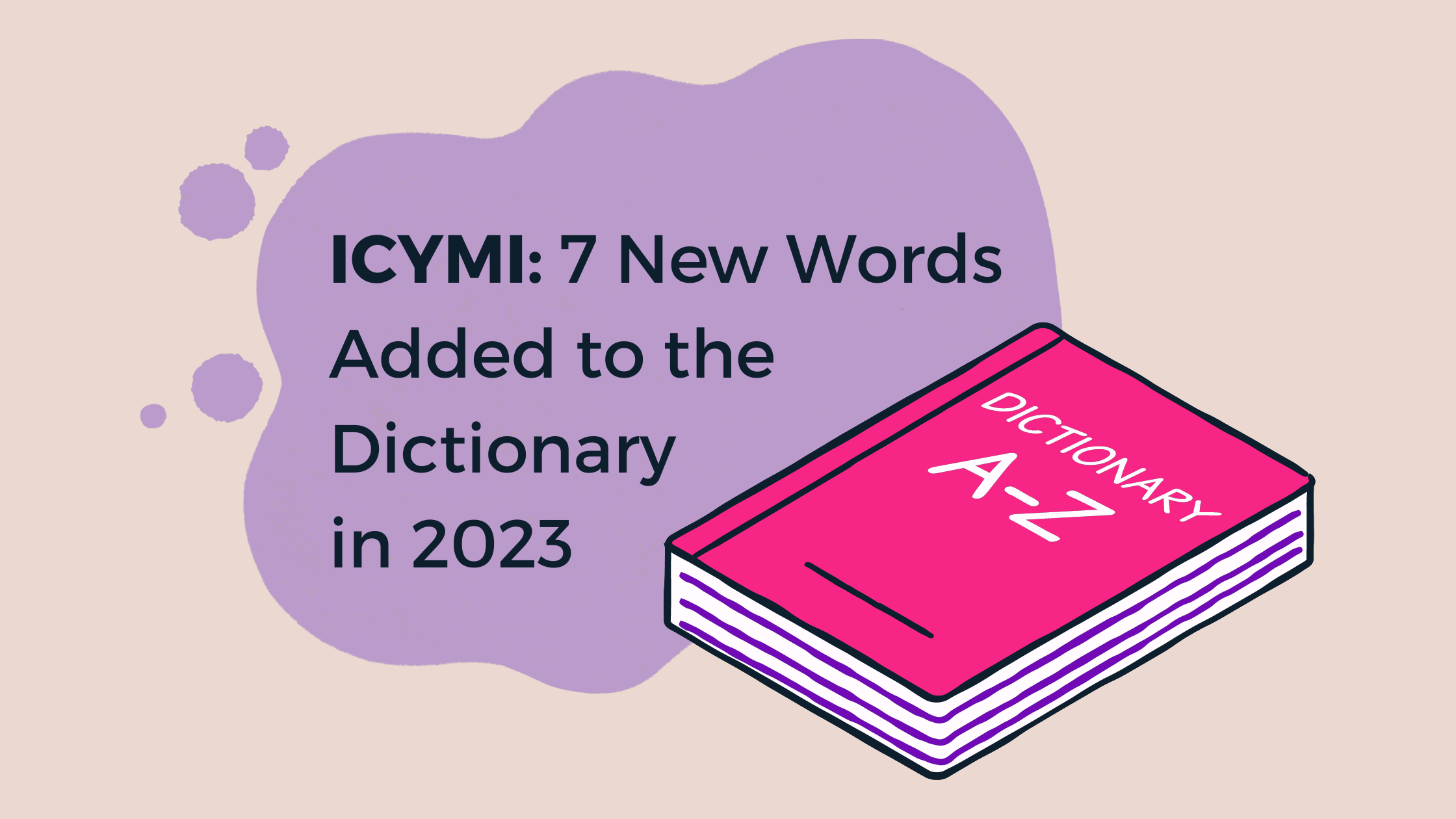ICYMI: 7 New Words Added to the Merriam-Webster Dictionary in 2023
A new year is approaching, which can only mean one thing for writing nerds — it’s time to see what additions have been made to the Merriam-Webster Dictionary.
You might remember that 455 words were added to the dictionary in 2022. Going into 2023, only 370 new words are earning their spot.
That’s still quite a few words, arguably more than we can fit in just one blog post. So, in this article, let’s talk about 7 slang words that have been added to the Merriam-Webster Dictionary.
In This Article:
Top 7 Slang Words That Are Merriam-Webster Approved
As we explained previously, Merriam-Webster officially adds words based on their usage. So, the more a word, phrase, or expression is used in different mediums, the more likely it is to earn an official dictionary definition.
I find slang words particularly interesting because they represent how people communicate in everyday conversation at a specific moment in time. People looking back at text messages, Slack channels, and emails 10 years from now might wonder what the heck we meant when we said these things.
With that in mind, let’s look at some informal words and sayings that are officially dictionary-approved.
ICYMI
This acronym stands for “in case you missed it.” It’s a much faster way to say the phrase and is often used in emails, texts, and even blog posts. Example: ICYMI, Merriam-Webster has just added 370 new words to the dictionary.
MacGyver
Youths might wonder who MacGyver is, but we older folks remember him as the guy who could get out of a jam using random tools and articles lying around. For years, I’ve heard this used as a verb in phrases like, “looks like we’ll need to MacGyver our way out of this.”
Cringe
The word “cringe” has been used as a verb for centuries. It was first introduced in the 1570s to mean “to bend or crouch, especially with servility or fear.” Recently, it has become popularly used as an adjective to describe something so embarrassing it makes one perform the act of cringing. My kids might use this, as in, “Mom’s dance moves are so cringe.”
Adorkable
The recent pandemic may have made us as a human population slightly more awkward than ever before. The internet responded by referring to people who are endearingly socially awkward as “adorkable.” As in, “those writers are so adorkable when they hide in their corners and refuse to join the rest of the company for happy hour.”
Janky
This word is a variation of “junky” and is used to describe something that is not high quality. For example, “that website is so janky,” or “I would love to join you for a 10-mile run, but I have this janky knee that keeps me on the couch in the warmth of my living room.”
Sus
As a mom of middle schoolers, I am all too aware that the word “suspicious” has been shortened to “sus” in the game Among Us. It can also be used to describe someone who is a suspect. For example, “that LinkedIn influencer who claims to make a million dollars a month is kind of sus.”
Yeet
Finally, the word “yeet” is getting the recognition it deserves as an expression of surprise, excitement, or enthusiasm. It’s the perfect way to say, “wow!” but cooler. Yeet can also be used as a verb, meaning to throw with force and zero regard for the object being thrown. For example, “if I have to restart this laptop one more time, I’m going to yeet it into the ocean.”
People First Content is Staying on Top of the Latest in the English Language
At PFC, we love words, and we especially love seeing what words become memorialized as part of our culture in the updates to the Merriam-Webster dictionary.
If you love words but don’t have the time to write them down as blog posts, emails, social media posts, or e-books, we can help!
Contact us to learn more about how PFC can help you create content that engages your audience and drives more traffic to your website.
Related Articles



Discover the words that defined 2024, and see how these top picks by leading dictionaries reflect our collective vibe, culture, and humor.